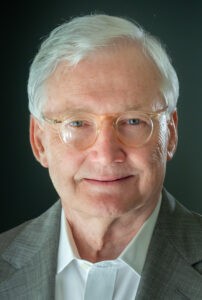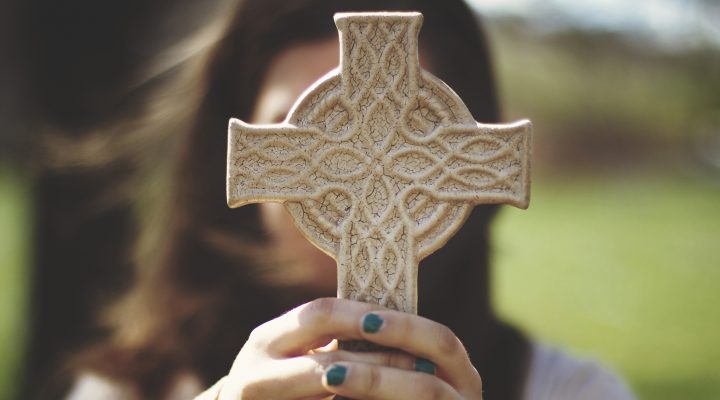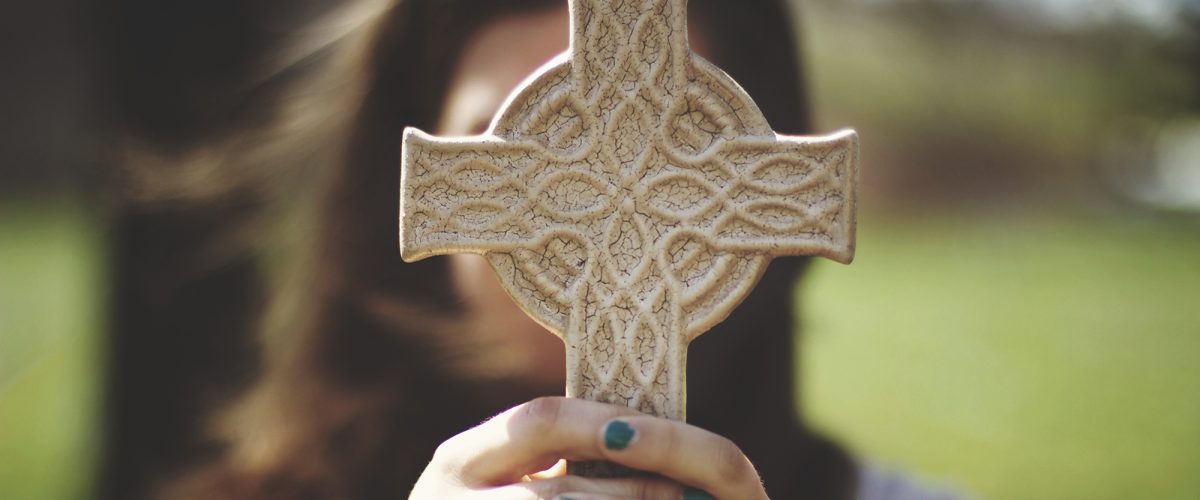The noted Cambridge historian Herbert Butterfield in his book Christianity and History, closes with the words: “Hold to Christ, and for the rest be totally uncommitted.”
Those may be words most needed these days when we are tempted to place one ideology or another, right and left, ahead of or alongside Christ.
In Colossians Paul warns: “See to it that no one makes a prey of you by philosophy and empty deceit according to human traditions, according to the elemental spirits of the universe and not according to Christ.”

Stephen Shoemaker
Today these elemental spirits are the ideologies of our day — political, cultural and racial. Paul warns that such ideologies could supersede Jesus. An ideology is an encompassing worldview by which we seek to explain all facts and understand the world. It lets little else in that might contradict its construction of the world.
By “Christ” I mean both the historical Jesus and the risen and living Christ — as Paul expressed it, “Christ in us and we in Christ.” The two must never be separated from one another.
The creeds jump from “born of the Virgin Mary” to “suffered under Pontius Pilate.” Christ-centered churches pay close attention to what’s in between — Jesus of Nazareth, his teaching and the way he brought the justice, joy, healing and compassion of the kingdom of God near in his life and ministry. Christ-centered churches also seek Christ’s living presence among us.
“Christ-centered churches also seek Christ’s living presence among us.”
I worry about the virtual eclipse of the historical Jesus in many churches, particularly on the conservative evangelical side, which makes them vulnerable to Christian nationalism and right-wing politics. I also worry about the neglect of the Living Christ, Christ in us and we in Christ, in other churches. The realm of the transcendental begins to fade. Jesus means justice, yes, but also healing and “love, peace and joy in the Holy Spirit.”
Jesus is, as George Buttrick wrote, “surprise of Mercy, outgoing Gladness, Rescue, Healing and Life.” He is with us at the table, in the least of these, at worship and in prayer.
In old Baptist covenants, we pledged ourselves to “the great duty of prayer.” Jesus spent long periods of time alone in prayer. Action and contemplation go together, the later sustaining and directing the former. How do churches encourage us in the growth in our spiritual lives? Is spiritual formation high on our priority list? How do seminaries and denominational bodies encourage our life in the Spirit, our private devotions and public worship? The church is more than a voting bloc or a party precinct, more than a nonprofit devoted to helping people, as essential as all these are to the betterment of the world.
Jesus relativizes our ideological commitments, loosens our hold on them and they on us. Someone quipped that “a heretic is one who has a complete grasp of a half truth.” It’s easy to have a complete hold of the partial truth of an ideology. Jesus relaxes our hands. The literal Hebrew of “Be still and know that I am God” is, “Let your hands grow slack.” Drop your weapons; trust in God. Trust less in your opinions, the most superficial layer of truth.
“Hold to Christ, and for the rest be totally uncommitted.” These words can sound pious, even sentimental, but who knows what can happen as Christ is set loose in our midst?
The Welsh poet Waldo Williams gives us numerous images of the Christ who comes to shatter and rearrange our kingdoms: Jesus the outsider, the stranger, the riddler of the kingdom, the huntsman, the exiled king and this, “the one who escapes the conscription of every army.” Dare we let him in?
There’s a saying in the recovery movement: “Don’t believe everything you think.” Jesus would approve this message.
Stephen Shoemaker serves as pastor of Grace Baptist Church in Statesville, N.C. He served previously as pastor of Myers Park Baptist in Charlotte, N.C.; Broadway Baptist in Fort Worth, Texas; and Crescent Hill Baptist in Louisville, Ky.


